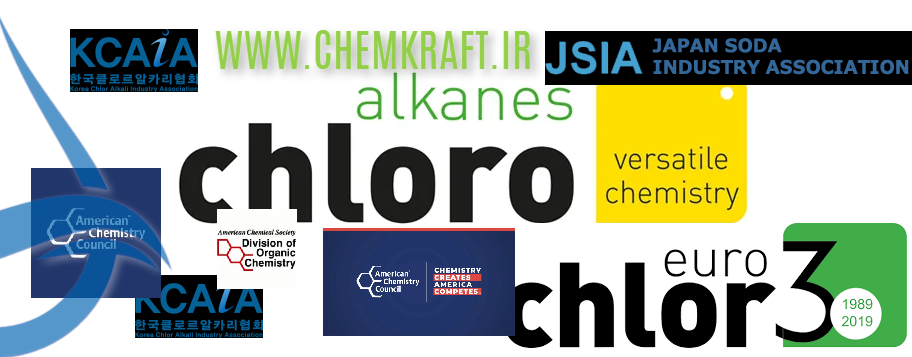SYNDICATES AND UNIONS IN THE GLOBAL CHLOR-ALKALI INDUSTRY
UNIFYING FORCES
Hossein Moshiri
Introduction:
Unions in Chlor-Alkali Industry: The chlor-alkali industry, a vital sector responsible for the production of chlorine, sodium hydroxide (caustic soda), and hydrogen, is marked by complex processes, diverse stakeholders, and intricate market dynamics. Syndicates and unions play a pivotal role in unifying producers, fostering collaboration, and addressing common challenges. This essay explores the main syndicates and unions in the global chlor-alkali industry, shedding light on their functions, significance, and the collaborative efforts that contribute to the industry’s sustainability and growth.
Global Overview of the Chlor-Alkali Industry:
Before delving into the specific syndicates and unions, it is crucial to understand the global landscape of the chlor-alkali industry. This industry is characterized by a network of producers, each contributing to the production of chlorine and caustic soda through electrolysis or other methods. The applications of these chemicals span various sectors, including chemicals, textiles, water treatment, and more.
MAIN SYNDICATES AND UNIONS:
The European Chlor-Alkali Industry (Euro Chlor):
Euro Chlor is a prominent syndicate representing chlor-alkali producers in Europe. As the sector group of the European Chemical Industry Council (Cefic), Euro Chlor brings together major companies engaged in the production of chlorine, caustic soda, and related products. The syndicate serves as a platform for collaboration, information exchange, and advocacy on behalf of its members.
The American Chemistry Council (ACC):
While not exclusively focused on chlor-alkali, the ACC is a major industry association that encompasses various sectors, including chlor-alkali producers in the United States. The ACC advocates for policies that promote sustainability, innovation, and the responsible production of chemicals. It serves as a unifying force for companies involved in the chlor-alkali industry within the broader chemical manufacturing landscape.
See also Analyzing the Use of Caustic Soda as a Depilatory Agent in Cosmetics Industry
Unions in Chlor-Alkali:
Japan Soda Industry Association:
Japan has a robust chlor-alkali industry, and the Japan Soda Industry Association plays a significant role in representing the interests of soda ash and caustic soda producers in the country. The association fosters collaboration among its members, addressing industry-specific challenges, and contributing to the overall development of the sector.
China Chlor-Alkali Industry Association (CCIAA):
As a major player in the global chlor-alkali landscape, China has its industry association dedicated to the sector. The CCIAA represents the interests of chlor-alkali producers in China, facilitating communication, collaboration, and joint initiatives to address industry challenges and promote sustainable practices.
Functions and Significance:
- Advocacy and Representation:Syndicates and unions in the chlor-alkali industry serve as powerful advocates for their members. They represent the collective interests of producers when engaging with regulatory bodies, policymakers, and other stakeholders. This unified voice is crucial in shaping policies that impact the industry’s operations and sustainability.
- Information Exchange and Best Practices:Collaborative platforms provided by syndicates facilitate the exchange of information and best practices among members. This sharing of knowledge enhances the efficiency and competitiveness of individual companies and contributes to the overall advancement of the industry.
- Research and Innovation:Syndicates often play a role in supporting research and innovation initiatives within the chlor-alkali sector. By pooling resources and expertise, members can collectively invest in technologies and processes that improve efficiency, reduce environmental impact, and address emerging challenges.
- Sustainability Initiatives:The chlor-alkali industry, like many others, is increasingly focused on sustainability. Syndicates and unions play a key role in driving sustainability initiatives, encouraging members to adopt environmentally friendly practices, and promoting responsible production methods.
- Collaboration on Health and Safety Standards:Health and safety standards are paramount in the chlor-alkali industry due to the hazardous nature of the chemicals involved. Syndicates work collaboratively to establish and promote industry-wide health and safety standards, ensuring a high level of protection for workers and the surrounding environment.
See also Exploring Opportunities for Iranian Caustic Soda Exports to GCC Countries
Unions in Chlor-Alkali:
Challenges and Collaborative Solutions:
The chlor-alkali industry faces various challenges, including regulatory changes, environmental concerns, and market dynamics. Syndicates and unions, by fostering collaboration, enable the industry to collectively address these challenges. For example:
- Regulatory Compliance:Syndicates play a crucial role in helping members navigate and comply with evolving regulatory frameworks. By providing a unified front, they can engage with regulatory authorities to ensure that policies are well-informed and practical for the industry.
- Environmental Stewardship:Environmental concerns, such as the management of by-products like mercury, require coordinated efforts. Syndicates work on shared initiatives that promote sustainable production practices, waste management, and the adoption of cleaner technologies.
- Market Dynamics:Fluctuations in market demand and competition from alternative technologies pose challenges to chlor-alkali producers. Syndicates facilitate discussions on market trends, explore collaborative ventures, and strategize on how the industry can adapt to changing dynamics.
Conclusion:
In conclusion, syndicates and unions play a vital role in the global chlor-alkali industry by unifying producers, fostering collaboration, and addressing common challenges. Organizations like Euro Chlor, the American Chemistry Council, the Japan Soda Industry Association, and the China Chlor-Alkali Industry Association serve as powerful advocates, facilitating information exchange, promoting sustainability, and contributing to the industry’s overall resilience and growth. As the chlor-alkali sector continues to evolve, these collaborative efforts will be instrumental in navigating complexities and ensuring a sustainable and competitive future for the industry.
Hossein Moshiri
WA +989124311007
Source: https://chemkraft.ir/en/unions-in-chlor-alkali/
Comments
Post a Comment